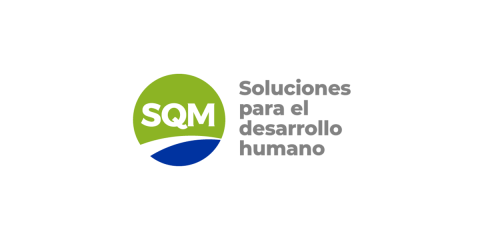
From expectations to ESG: Strengthening corporate accountability
The second assessment of the Expectations for EITI supporting companies shows progress and opportunities for improving corporate accountability.
Over two decades, the EITI has strengthened its commitment to transparency and accountability. Initially founded on the mandate for transparency of payments from extractive companies to governments, and citizen oversight of those transactions through the EITI’s multi-stakeholder approach, the organisation has expanded to include a crucial third pillar – corporate accountability.
With increasing attention on companies’ environmental, social and governance (ESG) performance, companies supporting the EITI have a golden opportunity to demonstrate their efforts in fostering sustainability, transparency and social responsibility, and to improve their performance against an international standard.
Companies supporting the EITI have a golden opportunity to demonstrate their efforts in fostering sustainability, transparency and social responsibility.
The principal driver of corporate accountability within the EITI is the Expectations for EITI supporting companies, which was incorporated into the EITI Standard in 2019. In 2021, the Expectations became a framework to assess performance by supporting companies, and to identify good practices and opportunities for improvement.
Since then, the EITI has carried out two assessments of companies’ progress in meeting the Expectations, which were strengthened further in 2022.
On the right path
When compared, the findings of both assessments – the first completed in 2021 and the second in 2023 – provide valuable data on company progress, and can inform ESG performance and exchanges on good practice. Covering nine areas, the results of the most recent assessment demonstrate that the majority of EITI supporting companies are meeting most of the Expectations, with many setting leading examples.
The majority of EITI supporting companies are meeting most of the Expectations, with many setting leading examples.
Moreover, several supporting companies represented on the EITI Board demonstrated leadership by fully meeting the Expectations. Over time, data from assessments can show how such an exercise can contribute to improved performance based on stronger adherence to stakeholder expectations.
Company assessments
Visit our company webpages to learn more about individual company results of the latest assessment against the Expectations for EITI supporting companies.
Transparency of taxes and payments
In 2021, nearly 70% of companies (44 of 62) publicly disclosed taxes and payments in non-EITI implementing countries. In 2023, this grew to about 90% (52 of 57), and of the five remaining companies, three provided partial disclosures in some but not all non-EITI countries.
Moreover, the 2023 assessment showed that nearly 70% of companies (39 of 57) were disclosing taxes and payments to governments in non-EITI countries disaggregated by project. While this is encouraging, it also shows that there is further scope for companies to make progress in meeting Expectation 3.
Beneficial ownership of companies
Both the 2021 and 2023 assessments showed that nearly all EITI supporting companies disclose their beneficial owners, either directly or according to stock exchange regulations and listing requirements. In line with the revised Expectations in 2022, which included an expectation to publish a statement of support for beneficial ownership transparency, 18 companies were found to publish such statements. However, 70% of companies (44 of 62) have yet to follow suit, indicating a need for many companies to make further progress on Expectation 6.
Due diligence processes and anti-corruption policies
Following the 2021 assessment, the EITI Board clarified the expectation for supporting companies to engage in rigorous due diligence processes, adding a new provision to publish an anti-corruption policy. The 2023 assessment found that nearly all supporting companies had published some form of anti-corruption policy, however these were often hard to find and varied considerably. Only a handful indicated how beneficial ownership information was used in companies’ due diligence processes, in line with Expectation 7.
Nearly all supporting companies had published some form of anti-corruption policy.
Supporting companies expressed a desire for further clarity, guidance and examples of good practices related to the expectation. This could draw on and complement guidance to implementing countries on the new 2023 EITI Standard, which encourages reporting companies and state-owned enterprises to engage in rigorous due diligence processes (Requirements 1.2 and 2.6), publish their anti-corruption policies, detail how they manage corruption risks and explain how they use beneficial ownership data, in line with Expectation 7.
Contract transparency
In this area significant progress has been shown since the 2021 assessment. This found that only a limited number of companies published statements of support on the disclosure of contracts and licenses. In 2022, the EITI Board strengthened the expectation on contract transparency. By the 2023 assessment, approximately 70% of companies (43 of 62) had published a statement of support for contract transparency in line with Expectation 8.
This progress was advanced in large part by ICMM’s commitment for its member companies to disclose mineral development contracts entered into from January 2021. Still, with nearly 30% of companies (18 of 62) not publishing a statement of support, further progress can be made on this expectation.
Disclosures in accordance with the EITI Standard
Consistently, from the 2021 assessment to the 2023 assessment, the vast majority of EITI supporting companies provided comprehensive disclosures in implementing countries in line with the EITI Standard. In this context of good performance, the recent assessment was still able to pinpoint four instances of partial disclosures, often linked to a company’s subsidiary in an EITI country, and to identify opportunities for improvement to the parent company.
Engagement in the EITI
The assessment highlighted a positive trend in the active engagement of companies in the assessment process. Out of the 62 assessed companies, 52 (84%) actively participated by submitting data and completing reviews of the EITI’s initial assessment.
Moreover, in EITI countries, where 52 supporting companies operate, more than 60% (32 of 52) were directly engaged in national EITI multi-stakeholder groups (MSGs). Additionally, numerous companies participated indirectly through industry associations and other representatives. Notably, 14 companies extended their involvement to multiple MSGs, with one company directly participating in eight MSGs.
In progress
The revisions to the Expectations in 2022 introduced new language on commodity trading transparency (Expectation 4), beneficial ownership transparency (Expectation 6), rigorous due diligence processes and anti-corruption policies (Expectation 7) and contract transparency (Expectation 8). With little time for companies to absorb these requirements prior to the 2023 assessment, there are still areas for improvement, as shown in the aggregate results. With more time and guidance on specific expectations, supporting companies will be better equipped to meet them.
Next steps
Following the 2023 assessment, the EITI Board recently agreed key recommendations to strengthen the assessment process and support further company progress:
- Publish individual assessments: To ensure accessibility, the Board agreed to publish each company’s assessment results in PDF format, alongside existing open data spreadsheets on the EITI website.
- Following up with companies: The EITI International Secretariat will follow up with companies falling short of the Expectations, encouraging and identifying opportunities for further progress. Companies are encouraged to respond with their intended steps for improvement ahead of the next assessment, and these responses will be published by the International Secretariat.
- Updating guidance: Acknowledging the need for clarity, the EITI Board agreed to update the Guidance on the Expectations, providing better explanations and examples of best practices.
- Timing of subsequent assessments: The EITI Board agreed to schedule the next assessment approximately 9 months before the next ordinary EITI Members’ Meeting, offering more time for the EITI company constituency to consider results when nominating representatives to the EITI Board. The next assessment is tentatively scheduled for autumn 2025, contingent on the date of the next ordinary EITI Members’ Meeting.
The Expectations for EITI supporting companies and subsequent assessments play a pivotal role in reinforcing the “third pillar” of accountability between extractive companies and citizens. Strengthening this pillar requires continuous progress by supporting companies and increased knowledge by citizens, civil society organisations, investors, shareholders and ESG ratings agencies – recognising that the industry-leading practices of EITI supporting companies can inspire others in the mining, oil and gas, energy and commodity trading sectors to join the race to the top.
The Expectations for EITI supporting companies and subsequent assessments play a pivotal role in reinforcing accountability between extractive companies and citizens.
While the assessment process provides a valuable tool for EITI implementing countries to hold companies accountable and for this information to be used by investors, there is a need for robust mechanisms to ensure non-EITI supporting companies adhere to EITI reporting. Progress both in this area and on the Expectations will help level the playing field and foster trust between extractive companies and citizens.


